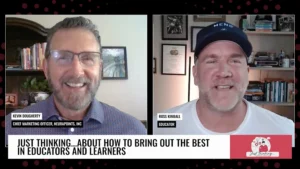Long Term Care Facilities Not Equipped For Bariatric Residents
Obesity is a major health issue, affecting millions of Americans, including the elderly. This shift in nursing home residents’ profiles is changing care dramatically, as these seniors deal with complications from diabetes, disabilities, and other weight-related ailments. These facilities are facing new and emerging challenges with many unprepared to care for morbidly obese residents.
The percentage of those entering American nursing homes who are moderate and severely obese, defined as a body mass index of 35 or greater, has risen sharply, to nearly 25% in 2010 from 14.7% in 2000.1 This trend is expected to increase. This is going to put a strain on nursing homes, that say they cannot afford to care for these residents. Medicaid, which covers more than 60% of all nursing home residents, does not reimburse these facilities for the specialized equipment needed, such as motorized lifts, wider beds, larger wheelchairs, shower chairs, longer intramuscular needles, and bigger blood pressure cuffs.1 For these reasons, facilities often have to turn away obese patients, as they don’t have the means to care for them. Model programs do exist for these patients, but they are not prevalent.
Bariatric Programs Are Not Standardized
Genesis HealthCare (GHC), a leader in nursing home care, recently closed its bariatric care program.2 Many in the industry considered GHC a standard in the industry for safe handling of obese patients. Other facilities have attempted to create a program, but found that it’s not financially feasible. As a result, bariatric patients have nowhere to go.
According to Barbara Miller, director of case management at the University of Arkansas for Medical Sciences,“It’s not uncommon to make 30 or 40 referrals to finally find a placement.” These denials, however, may be able to be countered with arguments under the Americans with Disability Act (ADA). Discrimination complaints have been filed by patients, but legal experts say it’s still an unresolved question.
Addressing the Care of Obese Residents
The stress and strain on staff in nursing homes is growing, as obese patients take more care. They must be moved regularly to avoid pressure injuries along with other health conditions unique to obese patients. This requires more time and resources that most facilities don’t have. Because there is often nowhere for these patients to go, they may stay longer in hospitals, adding more expense for Medicare and private insurers. As previously noted, there is no standardization of care for obese residents, though the GHC system has been used as model by many facilities.
The GHC model includes five components for enabling better care for bariatric patients:2
- Injury reduction program: a fully integrated delivery of care program for mobilizing obese patients via adequate staffing, ergonomic training, and appropriate equipment
- Competency-based education and training: ensures that staff are competent and have the required training to offer a higher level of care, which was supported through ongoing education
- Proper equipment: state-of-the-art devices like bariatric beds and other necessary devices to ensure that patients are able to be moved, transported, and cared for
- Redesign of the physical environment: renovation of spaces to ensure they are efficient and effective
- Appropriate staffing and support for an interdisciplinary care model: this included higher staff-to-resident ratios and a group effort for care with doctors, nurses, physical therapists, nutritionists, and others
AliMed Offers Bariatric Equipment
AliMed’s bariatric solutions facilitate safe handling and quality care for larger patients and reduce safety risks to both patients and staff. Click here to learn more.









